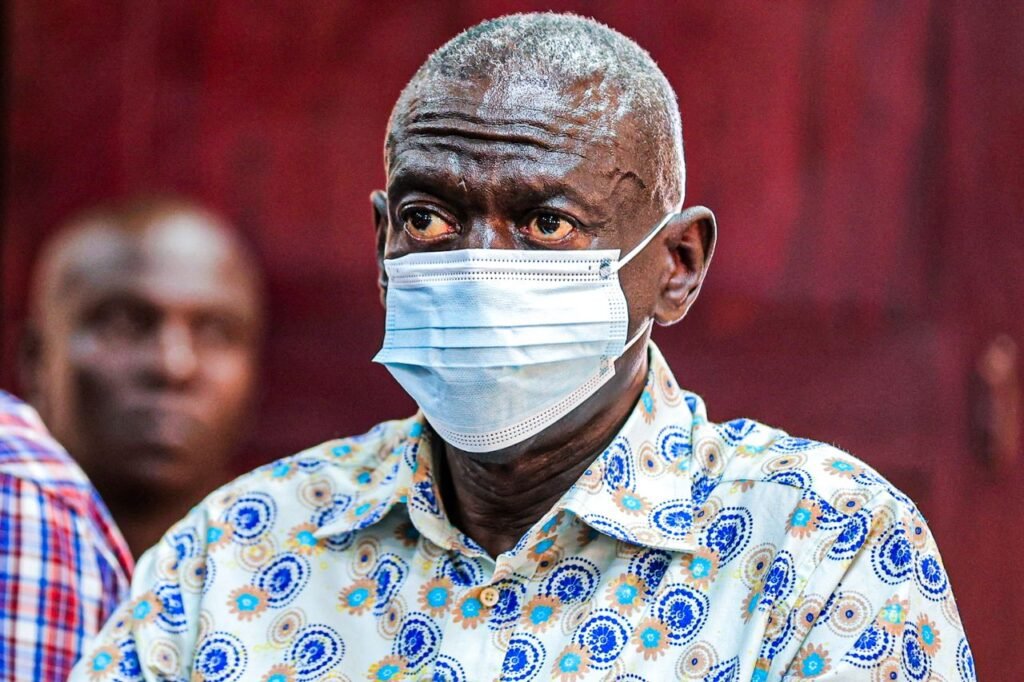KAMPALA, UGANDA — The has rejected the bail application of prominent opposition leader Dr. Kizza Besigye and his co-accused, Hajj Obeid Lutale, even after the court acknowledged that all statutory prerequisites for granting bail had been satisfied.
Justice Rosette Comfort Kania delivered the ruling in a fully occupied courtroom, underscoring the judiciary’s discretionary authority in balancing individual liberties with considerations of national security.
“Although all grounds for bail are met,” Justice Kania stated in her ruling, “the applications for bail are denied. The investigations are ongoing, and the applicants may still fall prey to the temptation of interfering with those investigations.”
The court affirmed that both applicants had demonstrated established places of residence, possessed no record of flight, and had presented credible and substantial individuals as sureties. Members of Parliament Ibrahim Ssemujju Nganda, Dr. Nicholas Thadeus Kamara, Tonny Muhindo, and Francis Mwijukye stood as sureties for Dr. Besigye, while Hajj Lutale presented family members, including his wife and blood relatives.
“These are credible, responsible individuals with the capacity to compel the applicants to return to court,” asserted Erias Lukwago, the lead counsel for the defense.
“If the court admits they have a place of abode, haven’t interfered with investigations, and have never skipped bail, why deny them their liberty?” Lukwago questioned, invoking Article 23(6)(a) of the Constitution, which guarantees the right to apply for bail. He further emphasized that the principle of presumption of innocence, as enshrined in Article 28(3)(a), should be the guiding principle in bail decisions.
In a notable observation regarding sureties, the presiding judge rejected arguments from the prosecution that sureties must be older than the accused. “To insist that sureties be older than the applicant sets a dangerous precedent. It would make it nearly impossible for older persons to access bail,” Justice Kania reasoned.
Nevertheless, the court cited the gravity of the charges – treason and misprision of treason – as the primary justification for denying bail. “These are serious charges that touch on the national security of Uganda,” the ruling stated. “While Makhoha and others charged with terrorism have secured bail, the severity of these treason charges warrants cautious handling. The court cannot, at this stage, make a determination on the evidence while investigations are still ongoing.”
The prosecution had previously contended that both Dr. Besigye and Hajj Lutale lacked fixed residences and posed a risk of interfering with ongoing investigations. However, the court found no compelling evidence to substantiate these claims. “The allegations of interference with investigations must be substantiated,” the court noted. “In this case, they were not.”
Despite these findings, Justice Kania maintained that the potential for interference, given the influence of the accused, could not be disregarded.
Dr. Besigye’s case has garnered significant attention due to the circumstances of his arrest. He was reportedly abducted in Nairobi, Kenya, last year in what his legal team has described as an unlawful cross-border rendition.
Subsequently, he was presented before the General Court Martial in Uganda and charged with treason. However, following a landmark Supreme Court ruling on January 31, which divested military courts of jurisdiction over civilians, Dr. Besigye’s case was transferred to the High Court Criminal Division.
Despite this transfer, he has remained in detention, with all prior attempts to secure bail unsuccessful.
“The right to liberty is fundamental,” Justice Kania concluded, “but must be weighed against the interests of national security. Bail is not an entitlement—it is a matter of court discretion.”
Dr. Besigye, a four-time presidential candidate and a long-standing critic of President Museveni’s administration, has now been in detention for over 120 days without a trial. His legal team has indicated their intention to appeal the court’s decision.
“We are deeply disappointed but not deterred,” Mr. Lukwago told reporters outside the courtroom. “The fight for justice continues.”
This remains a developing story.

